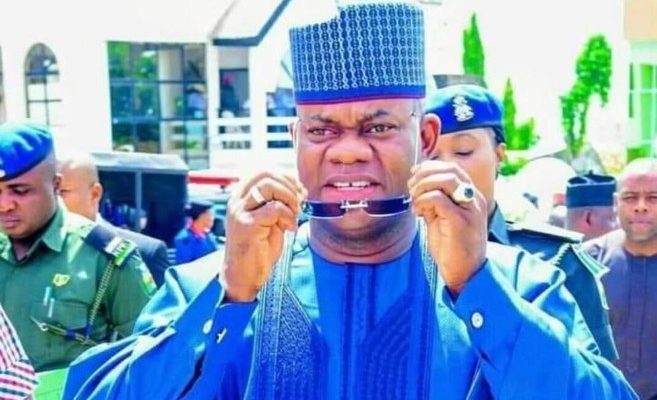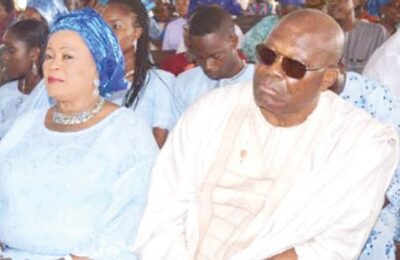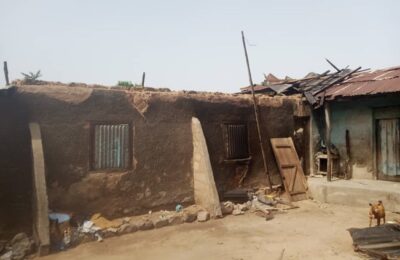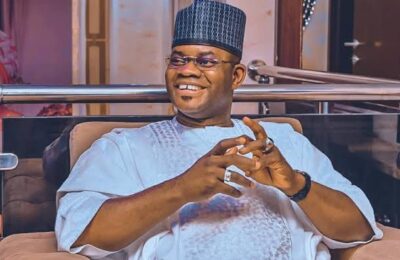Preamble:
It is no longer news that the growing penetration of young people in the Nigerian political scene speaks volumes about the possible realities of the 2023 Presidential Elections which commentators say would be one, packed with perspectives and intrigues.
This is so owing to a publication by reputable online medium, Premium Times, dated July 26, 2021, which reported that the Independent National Electoral Commission said it had within a month, recorded over a million registrants since it commenced online voter registration.
According to the report, whilst not less than 740,063 of the recorded registrants are Nigerian youth between the ages of 18 and 34, translating to 73.5% of the total figures recorded by the electoral body, people between the ages of 35 and 49 account for 278, 042 while the elderly between the ages of 50 and 69 struggle with a seemingly paltry 102,578. Interestingly, 14,712 people in their 70s and above registered online for transfers, replacement of PVCs, among other things whilst the data also showed that 12,274 people with disabilities across all categories had participated actively, in the months under review.
Synopsis of the Problem:
As it stands, the Nigerian State is currently restive on the ire of insecurity, ethnic disunity with religion sandwiching the other two variables to expand the problems as many people are rather emotional than objective in attending or analyzing the Nigerian problem. For insecurity alone, the recurring mass abduction of schoolchildren has spread palpable fears, causing the shutdown of more than 3,000 disadvantaged schools in the northwest and northcentral states.
As governments across levels struggle to stabilize their states coupled with the stark economic realities that greets them, a contingent of armed men continue to pillage schools, descending on colleges, and rustling staff and students into the bushes like cows. Sadly, before the outbreak of the Coronavirus pandemic, Nigeria already had been reported to have more than 10 million out-of-school children— the highest in the world — according to the United Nations Children’s Fund (UNICEF).
To strategically tackle this ugly menace of insecurity in his State of Kogi, Governor Yahaya Bello, upon assuming office Chief Security Officer, held an extraordinary meeting with heads of various security parastatals as well as various Chairmen across the 21 Local Government Areas of the State.
Effectively, he would later lead a historical march, combing the thick bushes, ransacking buildings labeled under intelligence reports, all in search of hideouts of criminals who had terrorized various regions of the State. Under his watch, their hideouts were attendantly reduced to ruins. Today, through that pragmatic effort, Kogi State prides itself as one of Nigeria’s safest states as it continues to prune unscrupulous elements who rise to distort the relative security being enjoyed by its residents.
To add, since 1999 when Nigeria returned to democracy, the organization of government and political parties goes pari-passu, however for the many years, our chequered democracy has rather solved the plenty monsters bedeviling the Nigerian State because the wheel carters have been chosen on the prism of ethnicity, religious belonging, zoning which also is not Federal character reflective, paying little attention to “competence” and track record.
Governor Bello, who didn’t seat in the comfort of his office in Lugard House like his counterparts would make frantic efforts against all odds, and today gains national and international recognition for championing the cause for brotherhood in Kogi State that had been formerly balkanized along tribe, religion, and class. Through the EBIGO Agenda, Kogi State currently thrives on the spirit of oneness, fairness, equity, and justice.
Like the sage would say: “a child who washes his hands well will eat with Kings…” Governor Bello has washed his hands clean, it is therefore not surprising that he receives these recognitions. To him, the true test of leadership does not end in his domestic State of Kogi, time after time, he admonishes his brother-governors to look outwards, imbibing the culture of putting the interest of the nation just as much as they hold dearly to their states, with the genuine thoughts that whatever affects one, affects all, irrespective of our various cultural, political, or socio-cultural leanings.
Justification of Thoughts:
As 2023 draws near, it is only ideal to identify certain factors, even though inexhaustible, that seeks to correct the decisional lapses affecting the country which by effect, makes a potential Yahaya Bello candidature very important:
- Kogi State is the accurate Lab of viewing the Nigerian Nation due to its heterogeneous nature, still, relatively peaceful. Kogi boasts of over 6 ethnic groups, living harmoniously. In stretching the argument to geopolitical reality, North Central has over 71 ethnic groups, still, one of the most peaceful parts of Nigeria. In the case of Kogi, Governor Bello balanced his leadership to reflect the heterogeneous nature of the people, thereby, fostering unity and installing peace and security, unlike the larger Nigerian state which has been accused of violating the Federal character arrangement.
- North Central states have a voter registration that is united in number unlike compact regions like South West whom would have ruled for 16 years in Aso Rock, yet North Central is yet to get into Aso Rock.
- Insecurity has been dealt a heavy blow in Kogi State. The entry of Governor Bello in 2016 was in the inheritance of a cell group of terrorists, kidnappers, arsonists, and all forms of banditry- by 2018- he had collapsed their structure that Kogi State currently leads the rankings as one of Nigeria’s safest states.
- From Nigeria’s Kidnap Capital to Safest State in Nigeria: Bello’s immeasurable determination and exertions have culminated in unprecedented success in the neutralization of the security threats posed by series of bank robberies, and kidnapping carried out by criminals who had unleashed terror and untold mayhem across the State. Pre 2015, Kogi State had been bedlam of fear, tears, and blood to the extent of being tagged: “the Kidnap Capital of Nigeria.” Whilst his counterparts were savoring their assumptions into office to take charge of administrative duties, Governor Bello had his desk littered with documents of series of crime reports that existed and required urgent attention. To the admiration of all, he rose to the occasion, making Kogi State burning coal for criminal elements.
- Infrastructure: Despite investing hugely in infrastructural development across the 3 Senatorial zones of the State so far, the health sector for one, has received its Midas touch through the renovation, remodeling, and re-equipping of 21 existing Primary Health Care Centres (one per Local Government) with solar-powered boreholes and electrification. Other intervention which includes the completion of the hitherto abandoned Confluence Advanced Medical Diagnostic and Imaging Centre (CAMDIC) with new equipment paid for and procurement of additional equipment, the College of Nursing, Obangede, in their rights, have received facelifts, with complementary renovation squarely carried out at the various Zonal Hospitals comprising of Kabba (Kogi West), Idah (Kogi East), and Okene (Kogi Central).
Whilst the Reference Hospital in Okene is in the pipeline, the Confluence University of Science and Technology, Osara (CUSTECH) has since commenced academic activities with construction still ongoing to meet global standards. Interestingly, other areas to have received due attention would be the Okene–Kuroko-Ehika-Ikaturu-Itakpe roads, Ankpa township roads, the Ijowa-Jege-Ife-Olukotun road, Shintaku-Gboloko-Dekina road in Dekina Local Government, Kogi East Senatorial District, not forgetting the construction and the rehabilitation of Lokoja township roads.
- Policy Reforms: One audacious character trait of Governor Bello that goes down the annals of history would be daring attempts to seek for Civil Service that truly works in Kogi State. Apparently, Ghost Workers who formerly milked the State of its Commonwealth were identified, and weeded off the Kogi Civil Service Farm, ending the weeks of rigorous, yet rewarding processes which currently leaves the Service on solid grounds of accountability, effectiveness, and diligence to work.
Ostensibly, Governor Bello has also been in the business of prioritizing the Agricultural Renaissance Policy of the Federal Government which is aimed at ensuring food sufficiency and promotion of non-dependency on oil, encouraging the people to key into farming through orientation, sensitization, mechanization, subsidy inputs, fertilizer, continuous training, and adequate support systems.
Asides from the purposeful administration, Public Service, and Pension Reforms, the State’s Tax Reforms have proven to be worth every decision made. Having granted the State’s Board of Internal Revenue autonomy suited with the construction of a new Revenue House with State of the art equipment and digital technology, Kogi State moved from a paltry monthly Internally Generated Revenue (IGR) of N350million to a mouthwatering N1.3Billion.
Time after Time, a patriotic Governor Bello does not shy away from counselling the Federal Government to review and promote certain Policy Reforms for quality Federal Character as the nation strives to nip its collection of challenges in the bud. On the issues of zoning of Nigeria’s Presidency for instance, he cautions that those fanning its embers must apply both reason and equity in the process, holding strongly to his words that the idea of zoning is not recognized in the 1999 Constitution, thus, is absolutely, unconstitutional.
- In his administrative chessboard, Governor Bello has been widely described to posses an unusual trust that women must be given every opportunities to prove their worth in service to the people. Asides from empowering women as Deputy Local Government Chairmen, Governor Yahaya Bello’s ADC and Secretary to the State Government (SSG) are women while the honcho in charge of Kogi State Investment Agency, an independent parastatal of the State Government is under the headship of a woman. All of these moves are pointers to the undeniable fact that Mr. Governor is women-friendly.
- Inclusive Governance: To Governor Bello, everyone willing to serve the people should be given the opportunity to. Unlike what previously held sway in the State’s hierarchy, he provides a leveled ground to youths, adult men, women, and even People Living with Disabilities, PLWDs to contribute their various quota in the business of governance.
- Religious and class segregation which is another oil to grease the problem of the Nigerian state has been demystified in Kogi State. Governor Bello not only abhors religious intolerance, but he also demonstrated it by building a Chapel of worship for Christians in the Government House as a Muslim after Kogi turned 28 years with over 3 democratically elected Governors who looked the other way. In his cabinet, he has also shown that religion is his business and not a state power in the choice of his aides.
Conclusion:
Summarily, the agitation for the participation of women in Politics gained beyond 35% in the cabinet structure of Governor Yahaya Bello, which is the constitutional benchmark for even the state and the party constitution, only him have kept it fulfilled. Let us not also forget, the youths constitute the largest demography of the voting population with agitation so growing that anything short of a Younger person as President in 2023, the Nigerian state may go into restiveness and the only Governor who would have served him terms, fitting the required experience, party networking, and political maturity will be only Governor Yahaya Bello.
Compiled by Promise Emmanuel
Chief Press Secretary to the Deputy Governor of Kogi State.
A Kogi Decide Platform Engagement.




